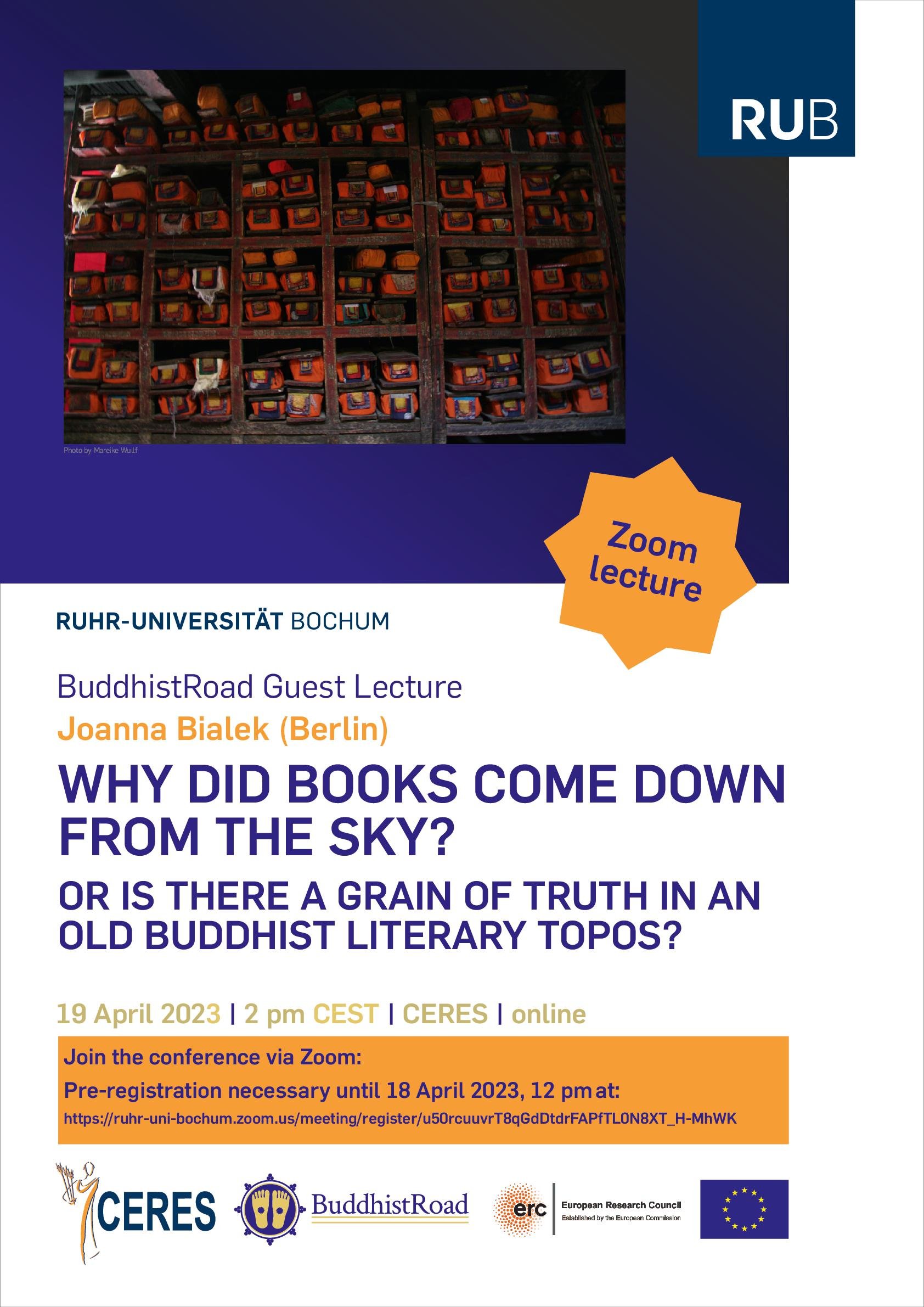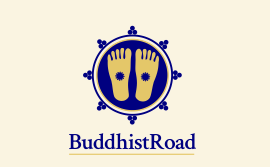Why did Books come down from the Sky? Or is there a Grain of Truth in an Old Buddhist Literary Topos?

19 April 2023 - Joanna Bialek (Berlin)
Why did Books come down from the Sky? Or is there a Grain of Truth in an Old Buddhist Literary Topos?
online guest lecture at the BuddhistRoad project, CERES, Ruhr University Bochum
The story of books coming from the sky is presented in native Tibetan historiographies and histories of religion as the first appearance of Buddhist teachings in the Yarlung Kingdom (?–6th c.) and as such it became an indispensable element in western textbooks on Tibetan Buddhism. Its standard formulation has a set of books contained in a casket that falls down from the sky and lands on the roof of a royal palace during the reign of king Lha Totori Nyentsen (Tib. Lha Tho tho ri gNyan bTsan). The story in its earliest known variants consists of at least three originally independent motifs that were linked to each other and woven into one topos most probably not earlier than in the 11th or 12th century. The motifs are: (1) the first encounter with Buddhism during the reign of Lha Totori Nyentsen; (2) books falling from the sky; and (3) valued works enclosed in a casket. Even though questioned by Nelpa Paṇḍita (fl. 13th c., Nel pa Paṇḍita), the historical value of the story has been rather widely acknowledged by Tibetan scholars and should receive additional support from the analysis presented in the paper. I attempt to elucidate two main problems related to the story: (1) the presumed independent origins of the single motifs; and (2) the historical events veiled behind the seemingly legendary account. Moreover, textual and linguistic analyses shall support the hypothesis that some parts of the story must have originated in a multicultural and multilingual environment for which Central Asian oases would be an ideal candidate. A comparison of this short account across various sources provides interesting insights on the socio-historical background of the compositions, informing our understanding of the processes of social and cultural change.


